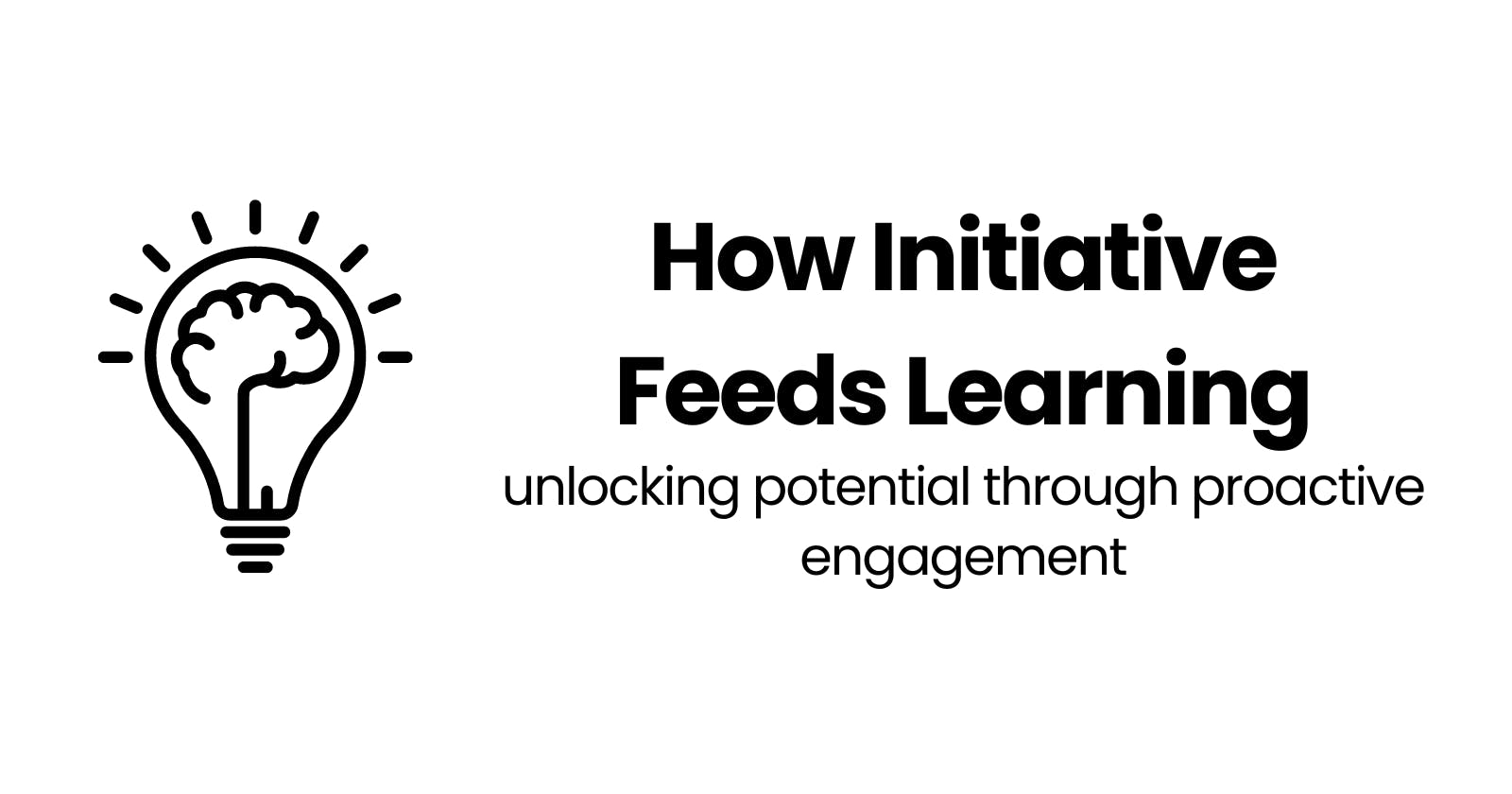How Initiative Feeds Learning
Unlocking potential through proactive engagement
👋🏽 Welcome back! It's Tebogo, and this week, we're chatting about how initiatives feed learning.
During my time at a company I've worked at before, I noticed occasional requests for stored fingerprints coming to the support and monitoring team. The process for retrieving the fingerprints involved editing a pre-created SQL script, executing it, converting the biometric data to PNGs, and zipping the images together before sending them back to the requester.
This process took valuable time away from the engineer executing this as they needed to switch between multiple tools to complete the request.
I took the initiative to automate the entire process by developing a Windows tool that required the client/customer identifier, and in return, it generated a zip file containing all the images. This not only reduced the time required from 5-10 minutes to under 1 minute, but it also taught me a lot - how to build Windows applications, what exactly biometric data is, and how to design a user-friendly interface.
Taking initiative feeds learning and demonstrates ownership, and your impact gets noticed.
The Learning Process Through Initiative
Initiative, in the context of professional development, refers to the proactive attitude and willingness to take action or steps without being prompted by others. It involves recognising opportunities or challenges around you and deciding to resolve them. This often goes beyond the basic requirements of one's role or responsibilities. However, this quality is not just about taking action but also about thinking critically and generating solutions that provide value and require creative or innovative approaches.
Here's how initiative links to learning:
Exposure to new challenges: Taking initiative often involves stepping out of your comfort zone. This exposure requires adapting and learning on the fly, expanding your knowledge base and skill set.
Active problem-solving: Initiative drives you to actively engage in problem-solving. This greatly enhances critical thinking and analytical skills, as you are required to continuously assess situations and make informed decisions. This process of identifying issues, coming up with solutions, and implementing them is a learning journey itself.
Increased resilience and adaptability: Taking initiative and facing new challenges inevitably involves encountering obstacles and sometimes failing. These experiences teach resilience and adaptability. Learning to bounce back from setbacks when necessary is an invaluable lesson that contributes to your overall growth.
In the example I gave, I had to go out of my comfort zone of being a backend engineer and build a front-facing tool. It was also my first time building any tooling since graduating.
I left out one tiny detail there - the tool I made was not adopted by the team (at least by the time I left). This was mainly due to me not thinking beforehand of the technical limitations, such as access to databases on a Windows application without a backend server. Although this was somewhat of a failure, it was a great win for me overall. I learned a lot and was introduced to the world of active problem-solving.
Encouraging a Culture of Initiative
Encouraging a culture of initiative within a team or organisation is essential for innovation, improving efficiency, and employee growth. Employees who take initiative are more likely to introduce efficiency gains that benefit themselves, the team, or beyond.
Here are a few ways to encourage a culture of initiative:
Lead by example: Managers and senior engineers should demonstrate initiative in their actions and decisions. When these leaders tackle problems proactively, look for opportunities for improvement, and show a willingness to go above and beyond their role expectations, they set a powerful example for their teams and others watching from the outside. This type of behaviour encourages employees to do the same, understanding that taking initiative is not only permitted but also celebrated.
Foster a safe environment for experimentation and innovation: Create an environment where failure is not feared but is seen as a step towards learning and innovating. Encourage experimentation while maintaining the understanding that not every initiative will be successful and this will remove the fear of reprisal.
Recognise and Reward Initiative: Recognising and rewarding initiative reinforces its value within the team or organisation. Although this doesn't mean financial rewards; public acknowledgment or additional responsibilities can also serve as incentives.
It is important to balance the encouragement of initiative with maintaining focus on current projects and responsibilities.
Examples of Initiative
Identifying inefficiencies in a workflow and developing a more streamlined and efficient process, such as automating repetitive tasks to save time.
Creating or advocating for training programs that help employees acquire new skills.
Starting a regular team knowledge session to promote learning and share knowledge across the team.
Final Thoughts
Taking initiative is an important part of your career growth and can accelerate learning and development. I have spoken mainly in the context of professional development but this also applies to personal development and beyond. By stepping forward to tackle new challenges and propose solutions, you not only enhance your skills but also contribute significantly to your team and organisation.
Have you recently taken initiative and learned a lot? Tell me about it in the comment section :)
If you found this article insightful and helpful, feel free to share it with your friends and colleagues.
Thanks for reading! 📖

